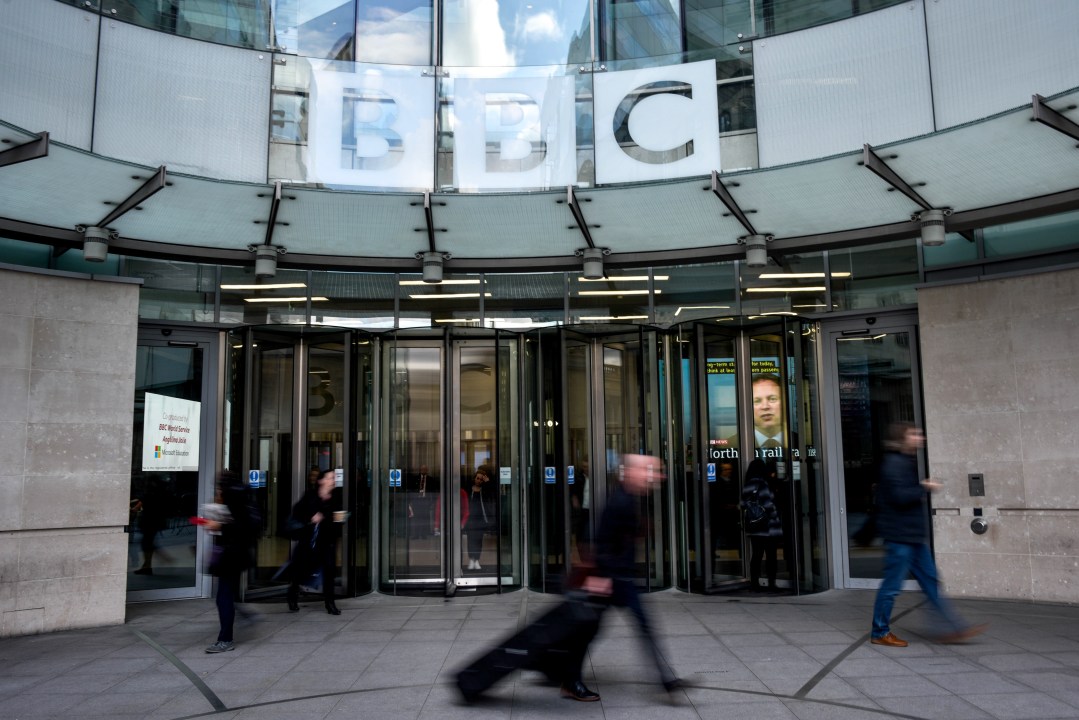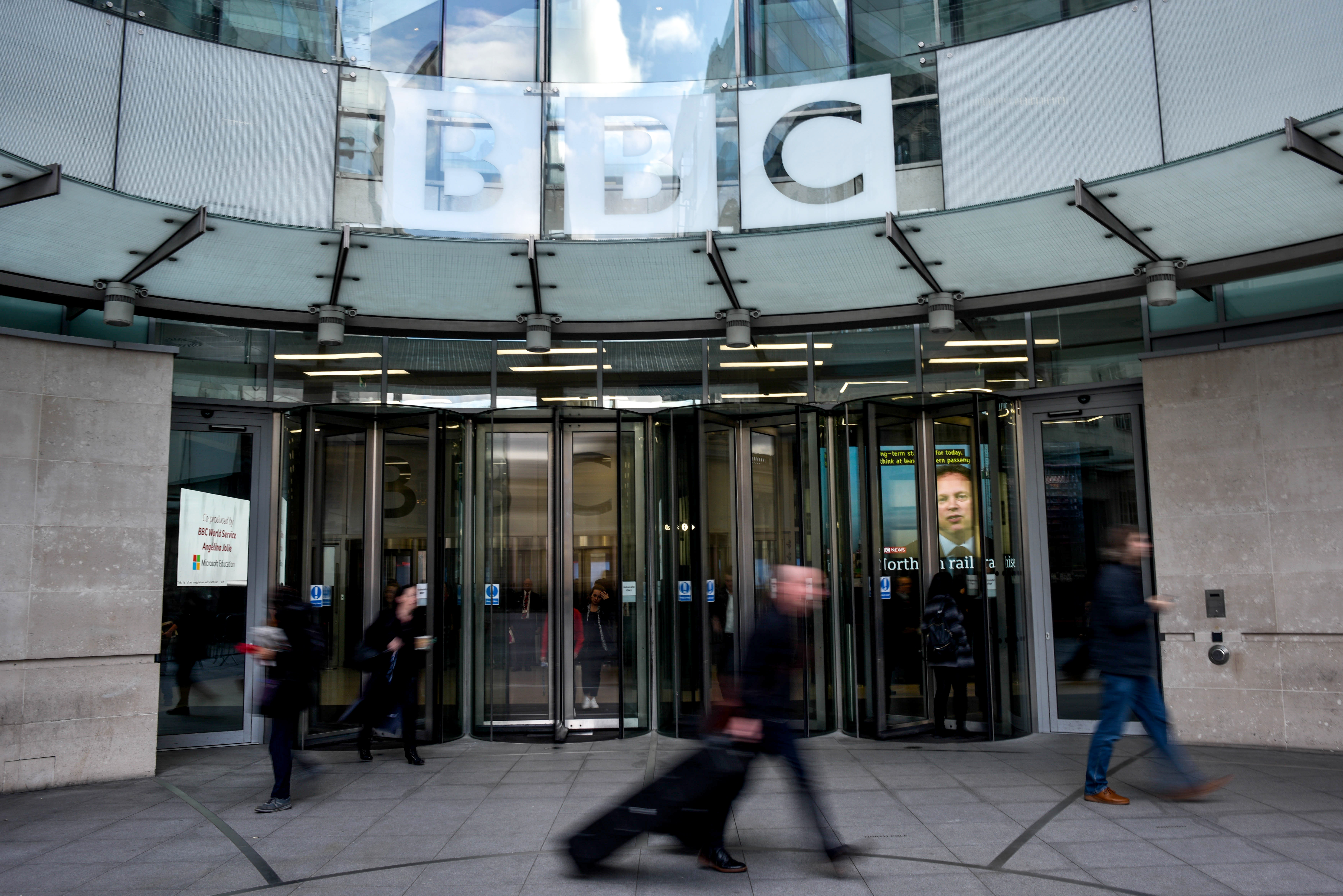The BBC is still investigating one of its journalists almost one week after it emerged she had tweeted ‘Hitler was right’. Tala Halawa, who is based in the West Bank city of Ramallah, is the ‘Palestine specialist’ for BBC Monitoring and was part of the reporting team which covered the recent fighting between Israel and Hamas and the reactions to the conflict. As The Spectator reported last Sunday, watchdog group Honest Reporting and a number of British Jews who campaign against antisemitism uncovered a series of tweets and Facebook posts from Halawa.
These included assertions such as ‘Israel is more Nazi than Hitler’ and ‘Hitler was right’, as well as the pronouncement that ‘ur media is controlled by ur zionist government’. On Facebook, she posted a meme advocating the ‘transportation’ of Israel to the United States to end ‘foreign interference’ in the Middle East. This is the same image that got Labour MP Naz Shah suspended in 2016. In addition to this, she tweeted that ‘Zionists can’t get enough of our blood’ and that ‘they’re are crying the holocaust every single moment but they’re practicing it every single moment as well’. Another post featured an image of a child being burned on top of a menorah, the Jewish religious candelabrum.
The BBC confirmed it was investigating the posts on Sunday, though was keen to stress that they predated Halawa’s employment with the Corporation. They did, by three years, though why the BBC thinks hiring her after she declared ‘Hitler was right’ (and then appointing her to cover Israel and the Palestinians) is a mitigating factor isn’t clear. This is the BBC press office’s current line:
Whilst these tweets predate the individual’s employment the BBC is taking this extremely seriously and is investigating the matter with urgency. We are clear there is no place for views like this to exist within the BBC and we deplore racism and anti-Semitism of any kind.
During the investigation The Spectator understands that Halawa won’t be producing journalism for the BBC which is the bare minimum the Corporation could do. While this story has been largely ignored by the progressive media (wrong perpetrator, wrong victims), its proximity to the Dyson report underscores the BBC’s growing problem with public trust. A Redfield and Wilton poll of 1,500 Britons, conducted in the wake of the Martin Bashir revelations, finds the scandal has caused 47 per cent to have less trust in the Corporation. A further third say it hasn’t affected their view while only six per cent have more trust as a result of the BBC’s handling of the matter.
Just 38 per cent have a favourable view of the Corporation, compared to 29 per cent unfavourable and 30 per cent neither way. All in, 56 per cent support scrapping the licence fee in favour of a private subscription-based model. Less than one-fifth oppose abolishing the levy. Almost half (49 per ent) do not believe the licence fee will exist in a decade’s time, compared to less than a quarter (23 per cent) who believe it will.
The BBC is one of our great liberal institutions and I am, by instinct, a defender of its place in British life. But there is no denying it faces multiple serious questions about its future. Bias is, of course, one of them, but it is generally the overplayed one. For all that the cultural progressive mindset that pervades in newsrooms and elsewhere skews the Corporation’s output towards a narrow, status-driven worldview unreflective of public sentiment outside London, the major cities and the university towns, the greater threat to the BBC is from technological and demographic trends.
Last year, Ofcom’s annual report found the BBC’s reach was waning among ethnic minorities, poorer viewers, older viewers, and under-35s. In the five years to 2020, the Corporation’s average weekly TV reach dropped 16 per cent among 25-to-34-year-olds, 19 points among 20-to-24-year-olds, and 22 per cent among 16-to-19-year-olds. The situation isn’t much better in radio. Forty-three per cent of the listening time spent by 15-to-24-year-olds is to commercial stations; less than a quarter is to the BBC. Ofcom concluded: ‘We do not expect a reversal of these trends.’
Ironically, one of the few things going for the BBC is Boris Johnson. The Prime Minister reportedly opposed Dominic Cummings’ push to replace the licence fee with a voluntary subscription and after Cummings’ resignation the government abandoned plans to decriminalise licence fee non-payment. For all his Brexit bombast, Johnson is a dripping-wet One Nationer who, if he believes in anything, believes in managing the liberal order rather than replacing it with a conservative one. As a liberal who dislikes the man a great deal, this puts me in an awkward position but not half as awkward as those right-wingers who convinced themselves they were getting a radical who would lead them in the culture war against the left.
However, as the cases of Tala Halawa and Martin Bashir show, the BBC can do much more damage to itself than any Prime Minister ever could. The Corporation can survive a hostile government, as it did in the 1980s and during the Iraq War, but it will struggle to survive any further loss of public confidence. If you are going to have a media empire that the people are compelled to fund on pain of prosecution, it has to be one they trust, want to consume, and feel reflects their values. The BBC is falling far short of that ideal.








Comments